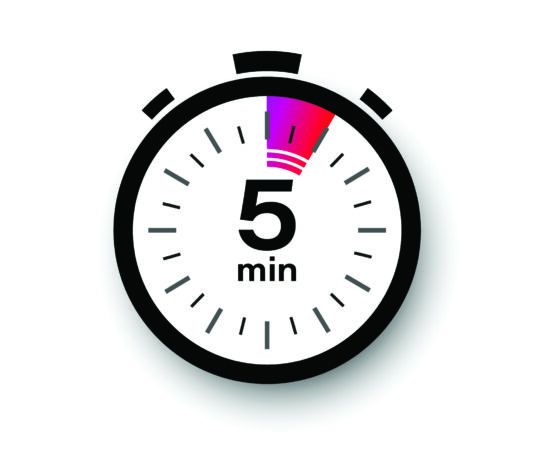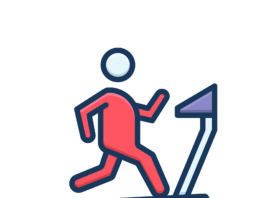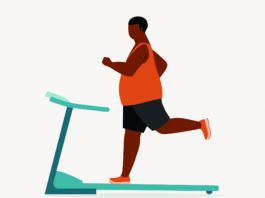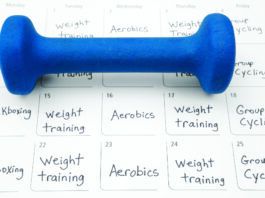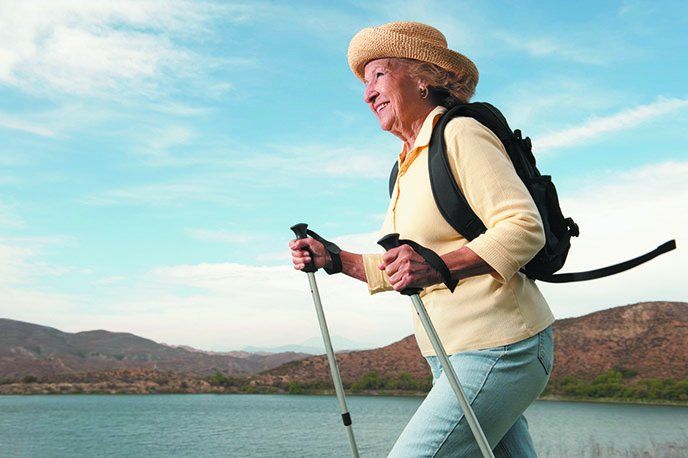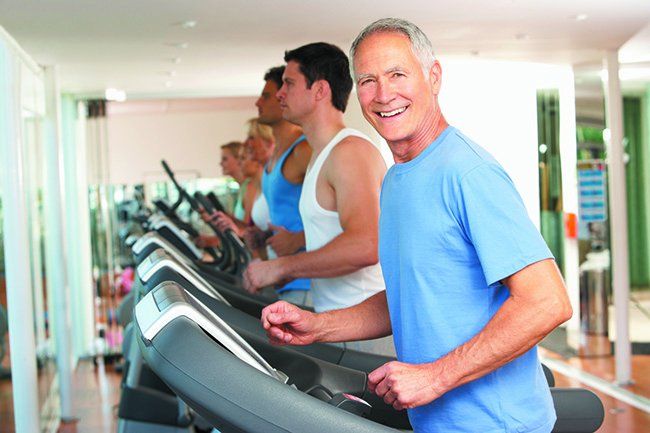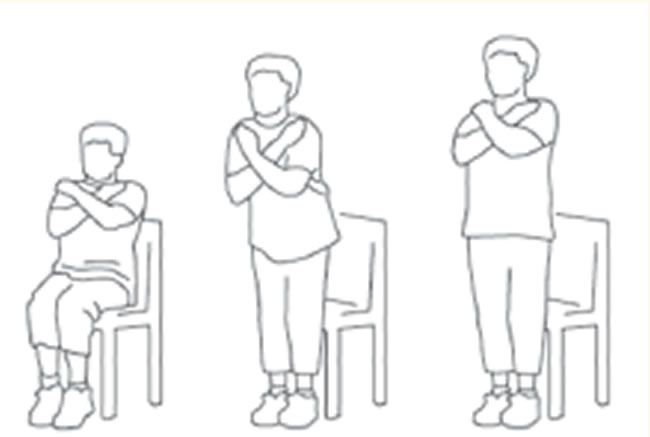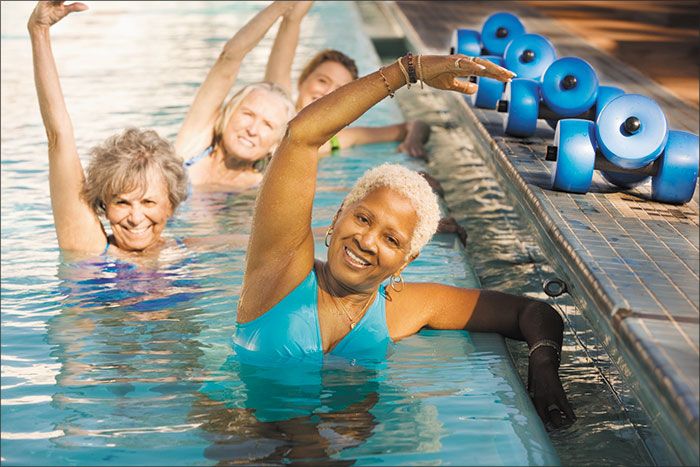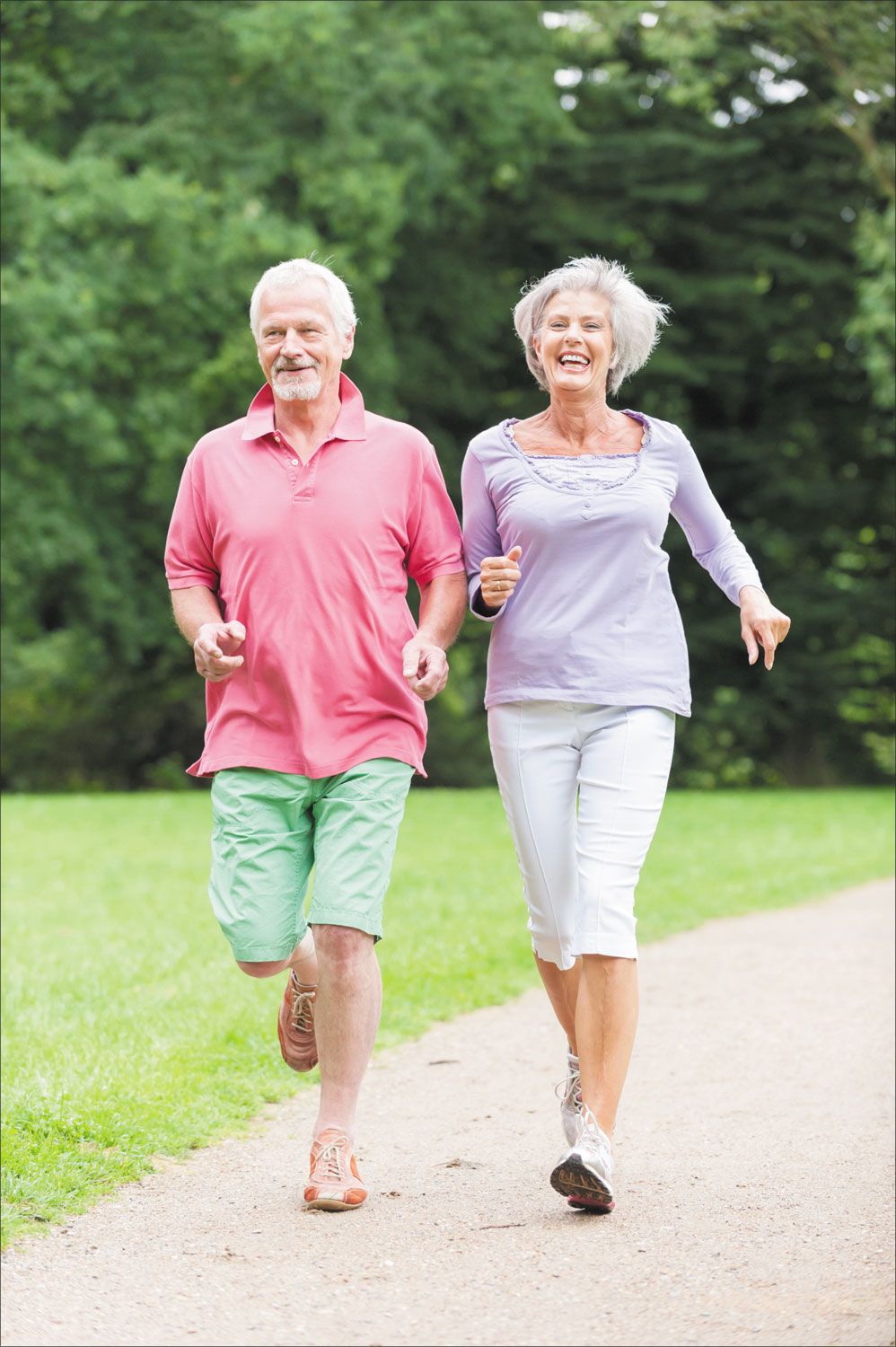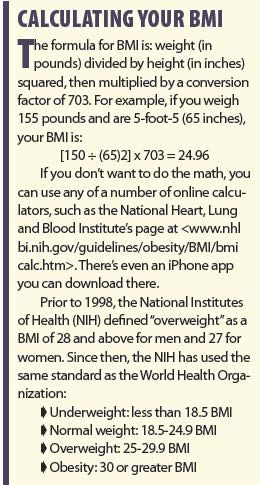Take Charge!
Engaging in enough daily physical activity to burn about 100 calories can be the difference between a high-risk sedentary lifestyle and being moderately inactive. Of course, youll want to aim for a greater level of activity over time, but just getting going can pay big dividends. Here are examples of activities that burn about 100 calories, depending on your weight, in about 20 minutes:
Activity Benefits Go Beyond Weight Loss
If youre looking for motivation to get up off the couch, the results of a large new European study may be just what you need to lace up those walking shoes. Even a moderate amount of exercise-the equivalent of a daily brisk 20-minute walk-was associated with significant reductions in mortality risk. Physical activity contributed to longevity independently of weight loss, and the biggest potential benefits were seen simply by going from completely sedentary to moderately inactive.
Get Fit Now to Keep Your Brain Sharp Later
A new study reports that the more physically fit you are when youre younger, the more likely you are to keep your brain sharp as you get older. But theres also good news for those who slacked off in their youth: Even starting to get more fit now might still improve your cognitive health.
What you need to know about physical activity and cognitive health
If you want to keep your brain sharp, get moving. The evidence that physical activity-even just brisk walking, gardening or household chores-contributes to cognitive health is even stronger than the associations between nutrition and cognition.
Q. When the advice says, “Eat five servings of fruits and vegetables daily,” does...
Q. When the advice says, Eat five servings of fruits and vegetables daily, does that mean five fruits plus five vegetables (10 total servings) or five total?
Extra Magnesium May Boost Your Physical Performance
Getting more magnesium might help you maintain mobility as you age. A new Italian randomized trial reports that daily supplementation with 300 milligrams of magnesium improved physical performance in older women. Among the benefits was a faster gait speed-a key factor in diagnosing sarcopenia, the frailty associated with loss of lean muscle mass in aging.
The Most Important Thing You Can Do for Your Heart
In women over age 30, a new Australian study reports, physical inactivity is the single biggest contributor to heart-disease risk. Researchers followed 32,154 women in three age groups, calculating how smoking, high blood pressure, physical inactivity and excess weight contributed to their heart risk. In younger women, smoking status was the most important factor in heart disease risk. But for women in their 70s, for example, being physically active would lower the risk almost three times as much as quitting smoking, and significantly more than losing weight or reducing blood pressure.
Exercisers May Overestimate Their Exertion Level
How hard do you exercise? Its probably not as vigorously as you think, suggests a new Canadian study published in PLOS One. Researchers tested 129 sedentary volunteers, ages 18 to 64, and found that most overestimated how intensely they were exercising. When asked to walk at the lowest intensity they thought qualified as moderate, only 25% got their heart rates high enough; most barely exceeded a leisurely stroll. Few hit 65% of their maximum heart rate (in beats per minute, 220 minus your age) when told to exercise moderately. Even fewer achieved more than 75% when instructed to amp up to vigorous exercise.
Aerobic Activity Helps Build Bigger Brains
Another study has shown that aerobic activity, such as brisk walking, boosts your brain-actually increasing the size of the hippocampus, a key part of the inner brain involved in forming, storing and processing memory. When compared to an earlier study of cognitively healthy older adults, moreover, the findings suggest that aerobic exercise offers greatest benefits to those who need it most: people with mild cognitive impairment (MCI), often a precursor to Alzheimers disease.
Rethinking BMI for Older Adults
If youre over 65 or approaching that age and still watching your weight, new findings suggest you may be worrying about the wrong thing. Its true that the obesity epidemic has exacted a serious toll on Americas health. But for older adults, maintaining muscle mass to ward off frailty-a condition called sarcopenia-is more important both to the length and quality of life than counting pounds. The popular Body Mass Index (BMI-see box), a calculation that combines weight and height, turns out not to be a very good predictor of health for older adults-for whom the rules about overweight may simply be different than for younger people.





















